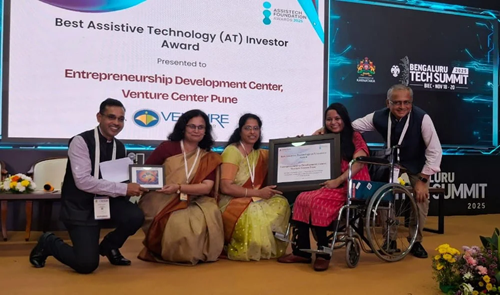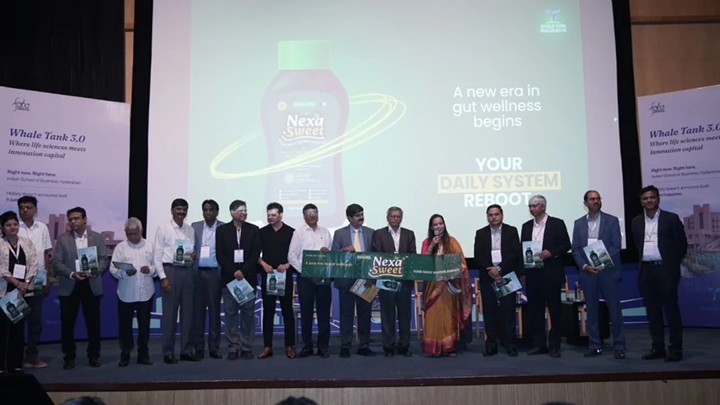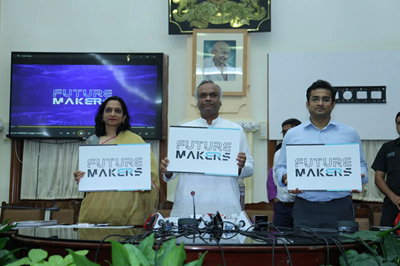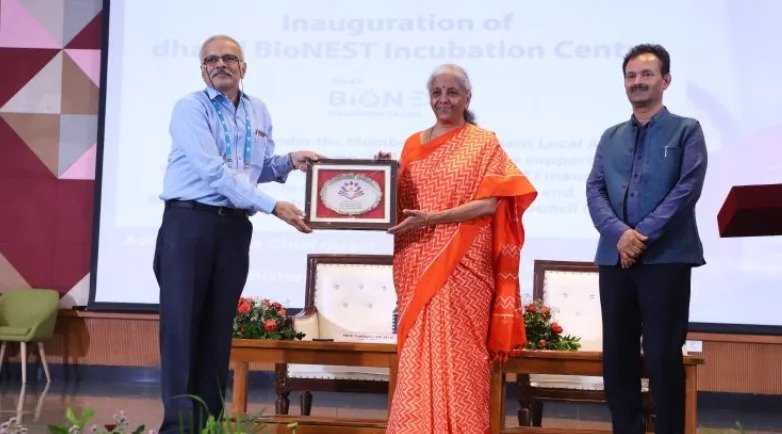The Role of Artificial Intelligence in Revolutionizing Biotechnology Startups
The technologies demonstrate the power of AI in improving disease detection, treatment precision, and overall patient outcomes, particularly in resource-constrained settings.

Artificial intelligence (AI) is transforming the biotechnology industry by enhancing the efficiency and accuracy of various processes, from drug discovery to personalized medicine. In drug development, AI-powered algorithms can analyze vast datasets to identify potential drug candidates, reducing the time and cost typically associated with traditional research methods. AI is also being used to optimize the design of clinical trials, predict patient responses, and streamline regulatory processes. In the realm of genomics, AI tools help in interpreting complex genetic information, enabling researchers to understand the underlying mechanisms of diseases and develop targeted therapies.
The advantages of AI in biotechnology are significant. By automating data analysis and predictive modelling, AI reduces human error, accelerates research timelines, and enables the discovery of new insights that may be difficult for human researchers to detect. Additionally, AI enhances precision in personalized medicine by analyzing individual genetic profiles to predict how patients will respond to treatments, ultimately improving patient outcomes. Its ability to process and analyze massive datasets allows biotech companies to harness the power of big data, leading to faster innovation and more effective treatments.
As a result, companies are investing more in AI technologies to remain competitive and drive breakthroughs in biotechnology. The cost savings, increased efficiency, and potential for innovation make AI an attractive investment. Furthermore, with growing demand for personalized medicine, there is a strong push to leverage AI's predictive capabilities to deliver more effective and tailored treatments to patients. This growing reliance on AI positions it as a critical tool in the future of biotechnology, offering transformative benefits across research, development, and patient care.
Qure.ai is a healthcare technology company specializing in artificial intelligence (AI) solutions to enhance medical imaging interpretation and improve early disease detection. Their AI-powered tools, such as qXR and qCT LN Quant, focus on the early diagnosis of lung cancer and tuberculosis (TB), especially in resource-limited settings. A recent study presented at the IASLC 2024 World Conference on Lung Cancer demonstrated the effectiveness of Qure.ai’s qXR solution in detecting pulmonary nodules in chest X-rays, revealing that 18% of lung cancer diagnoses were initially missed, with an average delay of three years. This AI tool helps clinicians detect high-risk nodules early, especially in community hospitals. Qure.ai has also launched the FDA-cleared qCT LN Quant solution, which assists radiologists in analyzing and tracking lung nodules on CT scans, improving early lung cancer detection. Additionally, Qure.ai’s technology was deployed in Nepal during a TB screening expedition, demonstrating the power of portable AI-powered X-ray machines to deliver rapid diagnoses in remote areas with limited healthcare access. These efforts highlight Qure.ai’s significant role in global healthcare, leveraging AI to improve outcomes in both cancer and TB detection.
InMed Prognostics is an AI-driven healthcare company that focuses on using advanced technology to support early detection and treatment of neurodegenerative diseases. Their flagship product, NeuroShield, is an AI-powered tool that quantifies brain volumes using 3D MRI scans. Recently cleared by the FDA, NeuroShield is in use at over 200 sites worldwide. It aids neurologists and neuroradiologists by automatically analyzing brain atrophy with high accuracy, facilitating early intervention for conditions like Alzheimer's and epilepsy. The tool also provides ethnicity- and gender-specific reference ranges, offering tailored data for diverse populations. InMed Prognostics emphasizes making precision healthcare accessible and affordable for all, reducing the burden on radiologists and improving patient outcomes through timely diagnosis and treatment.
SigTuple is a medtech company specializing in AI-powered digital microscopy solutions. Its innovative device, AI100 with Shonit, has gained FDA 510(k) clearance, marking a significant milestone as the first AI-assisted digital microscopy product from India to receive such approval. The device automates the microscopic examination of peripheral blood smears (PBS), which are essential in diagnosing conditions such as blood cancers, infections, anemia, and allergies. Traditionally, these reviews require highly skilled pathologists to manually examine the samples, often limiting efficiency and accessibility. However, SigTuple’s AI100 with Shonit revolutionizes this process by digitizing the PBS samples through a microscopic lens, where AI models extract and classify cells into over 30 different types.
This automation allows pathologists to remotely access and analyse blood samples, significantly increasing their capacity to manage a larger volume of cases without compromising accuracy. This is especially beneficial in resource-limited settings, where the availability of expert pathologists can be a constraint. The device enhances the efficiency of blood sample analysis and enables quicker and more accurate diagnoses. SigTuple’s FDA approval not only validates the reliability and effectiveness of the product but also opens doors for global expansion, positioning the company as a key player in the international medical technology market.
NIRAMAI Health Analytix is an Indian health tech startup, founded in 2016, that specializes in early breast cancer detection through innovative AI-driven solutions. Their key technology, Thermalytix®, is a non-invasive, radiation-free screening tool that leverages artificial intelligence to detect breast cancer with high accuracy, offering a private and painless experience for patients. NIRAMAI's work is focused on making early detection more accessible and efficient, especially in resource-limited settings.
In 2024, NIRAMAI partnered with Aktion Pink, a German NGO, to strengthen the global fight against breast cancer. This collaboration aims to merge NIRAMAI's cutting-edge AI-based technology with Aktion Pink's advocacy and awareness efforts. By combining technical innovation with public health outreach, the partnership seeks to enhance early detection rates of breast cancer and improve patient outcomes worldwide. NIRAMAI's Thermalytix® technology, which is portable and ensures patient privacy, provides an effective solution for early-stage breast cancer screening, even in regions where healthcare resources are limited. Together, NIRAMAI and Aktion Pink hope to make a significant impact on breast cancer awareness and treatment, helping to save lives through timely intervention.
Artificial intelligence is profoundly reshaping the biotechnology landscape by enhancing the efficiency, accuracy, and speed of various processes, from drug discovery to diagnostics. Startups like Qure.ai, InMed Prognostics, SigTuple, and NIRAMAI are pioneering AI-driven solutions that address critical healthcare challenges. Their technologies demonstrate the power of AI in improving disease detection, treatment precision, and overall patient outcomes, particularly in resource-constrained settings.
By automating complex analyses, reducing human error, and accelerating research, AI opens new frontiers in personalized medicine and diagnostic tools, transforming healthcare practices globally. As these innovations continue to evolve, the synergy between AI and biotechnology is set to unlock unprecedented advancements, driving a more efficient, accessible, and patient-centred healthcare system. The future of biotech is poised for breakthroughs, with AI serving as a crucial catalyst for innovation and progress.
Published on : 19th September, 2024
BIO-TECH
-
IHH Healthcare and Fortis launch ‘IHH Catalyst’ to strengthen India’s healthcare innovation ecosystem 11th February, 2026

-
Venture Center receives ATF 2025 Honour for supporting assistive technology innovations 24th November, 2025

-
Vaidam Health and Vanuatu's Ministry of Health ink MoU to strengthen cross-border healthcare access 20th November, 2025

-
Whale Tank Biocatalysts hosts Startup-Investor Meet WT 3.0 in Hyderabad 17th November, 2025

-
BTS 2025 to host India’s largest entrepreneurship platform “Future Makers Conclave” on Nov 20 06th November, 2025

-
Bessemer Venture Partners leads Rs 125 Cr Series A funding in fertility startup Pluro 04th November, 2025

-
dhaRti BioNEST Incubation Centre opens at Indian Institute of Technology (IIT) Dharwad 15th October, 2025





